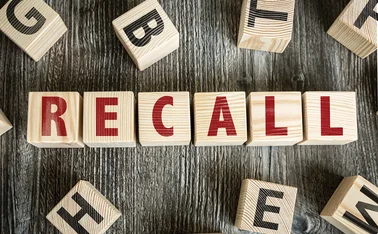
Analysis: Whiplash and insurer demand driving claims sector consolidation

Need to know
- Davies acquired law firm Keoghs last month.
- Consolidation is expected to continue as claims firms look to offer a wide range of services under one roof.
- Some sources predict that consolidation will lead to mid-sized players being squeezed out of the market.
- Legislative changes are one of the factors driving the consolidation.
Following Davies' acquisition of Keoghs further consolidation is expected in the claims sector and it could push mid-sized firms out of the picture.
Last month Post revealed that Davies had acquired Keoghs for an undisclosed sum.
The insurance law firm will form a legal solutions arm within Davies, with Keoghs CEO John Whittle to join Davies’ executive committee and continue to lead the business.
According to a senior claims source, integrating the legal side with the loss adjusting makes “huge sense” and in many ways is an extension of the alternative business structure models.
They said: “It’s clear that Davies is preparing for the legislative changes and therefore potentially have the opportunity to enter the space for businesses that are able to process and deal with volume claims.
“There’s sort of unspoken cultural fit in that. Legal services has always been professional services partnership model. A lot of law firms still operate on a partnership model and of course that’s a cultural fit with loss adjusters, who have also operated on that basis.
Cultural fit
“Most loss adjusters started as partnerships so there are much more relevant strategic reasons why Davies would acquire Keoghs. Often with these deals it’s really hard to integrate but the tradition which both come from is a partnership tradition and that’s a good cultural fit there, which will improve the way the two businesses are locked together."
More “Davies type models” will emerge, they predicted.
They continued: “The claims sector has been terribly disaggregated, it’s terribly bitty and there’s lots and lots of different players. Over time, and thanks to technology and regulatory changes, we are likely to see the emergence of large players like the Davies.
“Small specialist will always be around, but it will squeeze out the mid ranking players. They’re not big enough to keep up with the large guys but also not small enough to do the specialist work so over time they will thin out.
“You have three or four really big players in the market, and a couple of specialists at the moment, and what Davies is doing is accelerating that trend.”
Acquisition
Speaking this week, Davies CEO Dan Saulter, told Post: “About two or three years ago, we began focusing our attention on adding legal solutions capability in the insurance space, which we see as very natural next place for Davies to take our business.
“It took us a while to understand how to do that. We had options around acquiring something or launching our own solutions in the market. In reality in our view, the very best performing business in the sector is Keoghs. It’s a business that has 100% focus on the insurance market and has heavily invested in automation, artificial intelligence and technology.
“When we got chatting to Keoghs, we saw a lot of overlap and commonality in culture in the way we approach technology and disruption and got really excited about bringing the two businesses together.”
Going forward Davies wants to make sure clients and customers felt assured that the company is going to continue to invest in good business, according to Saulter.
The claims firm has invested heavily in technology and will continue to increase that investment, Saulter said.
He said: “For some clients there will be a lot gained from being able to procure more service and a wider partnership from Davies and Keoghs together.
“We [Davies and Keoghs] already share a great number of applied relationships, so we’re excited for the future.”
While Saulter said that acquisition of Keoghs is not predicated on doing more deals in the legal sector, he believes there will be further consolidation in the insurance space.
He said: “There will be further consolidation in the insurance legal space in due course, I’m sure we will play our part in that in due course, but for now that certainly is not the focus for us. The focus is on making sure we do a really great job bringing all our close colleagues and clients into the Davies family and make sure we do a great deal of investing in the IT and the systems for the future and grow organically.
“I’m certainly not ruling out the prospect of further consolidation down the path, which will happen whether or not Davies plays its part in it.
“A number of other big claims operations are already in the legal space or insurance services business so it’s not a novel or clever idea – it’s an obvious step for us and we are absolutely thrilled that Keoghs chose to join Davies and we’re excited for the future.”
Disaggregated sector
Shirley Woolham, CEO at Minster Law agreed that the acquisition makes sense and was not a huge surprise.
She said: “It doesn’t surprise me that we see yet another example of acquisition activities to create a consolidated claims proposition. We have seen signs of that over the last 12 months. We are moving from a sector that was highly disaggregated with hundreds of players performing some small part of the claims journey – but all broadly satisfy the same business partner or insurer need which is to have high quality services at the lowest cost.
“So the consolidation of that sector through acquisitions, the binding together of the disparate elements of the service is not a surprise to us."
According to Woolham, the consolidation allows organisations like Davies offer insurance clients a wide range of services to meet their needs all under one roof.
She added: “Our market is going to consolidate and having a market that has a number of larger players will give the regulator confidence that there are organisations with the funding and capability to meet insurance customers' needs.
“They [larger players] also have the investment and capability to pay for new technology and try drive economies of scale across their acquired business, which has to be a good thing for the end customers because they will get a better experience as a result.
“However, the acquisition is not the only way to deliver the same outcome. We are also seeing strategic alliances forming between organisations to try and generate the same seamless service without any one company buying the other and that’s something Minster Law is exploring – working with suppliers such as tire repair companies to offer the best in class service.
Whiplash reforms
Woolham highlighted that the Civil Liability Act is one of the reasons why businesses might want to look to consolidate.
She said: “In a motor claims market, it [consolidation] is an outcome of the Civil Liability Act and the removal of friction. When you start removing friction from the process, you need to have adversaries sitting across the table, competing and arguing with each other for the way that itself creates the best environment for organisations to come together, work together and collaborate.
“This is going to become an increasingly influencing part in friction removal and particularly in the motor space going to be an increasing accelerator to consolidation."
Woolham added: “The benefit of the Keoghs acquisition is that they can provide the shortest path with a full range of services under one roof. Davies is well placed with their high acquisitive agenda to knit together the fragmented part of an insurance claims process to remove friction and lower costs and that should be something everyone working in claims sector is focused on.
“The market will consolidate, we will end up with a smaller number of very big players and a smaller number of speciality providers, but the middle tier will thin.”
Martin Milliner, LV GI claims director, said: “I can absolutely see why this deal makes sense for both businesses. Plugging an obvious gap in Davies full service model and creating the security, investment and additional technology that will see Keoghs confront the forthcoming disruption in the defendant legal market. Seems like a win-win to me.”
Growing demand
Insurer demand for additional services was pitched as another reason for the buy.
And whether consolidation will result in mid-range players being squeezed out is up for debate.
Mergers and acquisitions expert Olly Laughton-Scott, partner at Imas, said: “The key point is that, increasingly, if you buy outsourced services, you are held responsible for the provision of those services, so that the insurers are very keen to deal with people who have high standards and fill their criteria, and dealing with larger companies makes it easier.
“So what we are seeing is demand from insurers for a services across the industry, so that the provider can provide a full range of services. What this acquisition is doing, is filling in another part of the jigsaw.”
He added: “The claims market will continue to consolidate as insurers work with fewer providers of services to ensure those services are delivered to a high standard. However, it is not in insurers’ interest that market is dominated by a single supplier so they will ensure they purchase services from a number of quality providers.”
Chris Hall, managing director at Questgates said: “It is inevitable given the changes in the legal services market that companies focused on providing high volume end to end services will look to add the ability to provide these in house. On this basis further consolidation between legal companies who focus on servicing insurers' needs and large outsourcers is inevitable.
“However this further differentiates providers such as Davies from those that seek to provide bespoke services in technical areas where innovation and service delivery really matter, as Questgates does on a global basis since becoming a partner in the VRS organisation."
Only users who have a paid subscription or are part of a corporate subscription are able to print or copy content.
To access these options, along with all other subscription benefits, please contact info@postonline.co.uk or view our subscription options here: https://subscriptions.postonline.co.uk/subscribe
You are currently unable to print this content. Please contact info@postonline.co.uk to find out more.
You are currently unable to copy this content. Please contact info@postonline.co.uk to find out more.
Copyright Infopro Digital Limited. All rights reserved.
As outlined in our terms and conditions, https://www.infopro-digital.com/terms-and-conditions/subscriptions/ (point 2.4), printing is limited to a single copy.
If you would like to purchase additional rights please email info@postonline.co.uk
Copyright Infopro Digital Limited. All rights reserved.
You may share this content using our article tools. As outlined in our terms and conditions, https://www.infopro-digital.com/terms-and-conditions/subscriptions/ (clause 2.4), an Authorised User may only make one copy of the materials for their own personal use. You must also comply with the restrictions in clause 2.5.
If you would like to purchase additional rights please email info@postonline.co.uk








